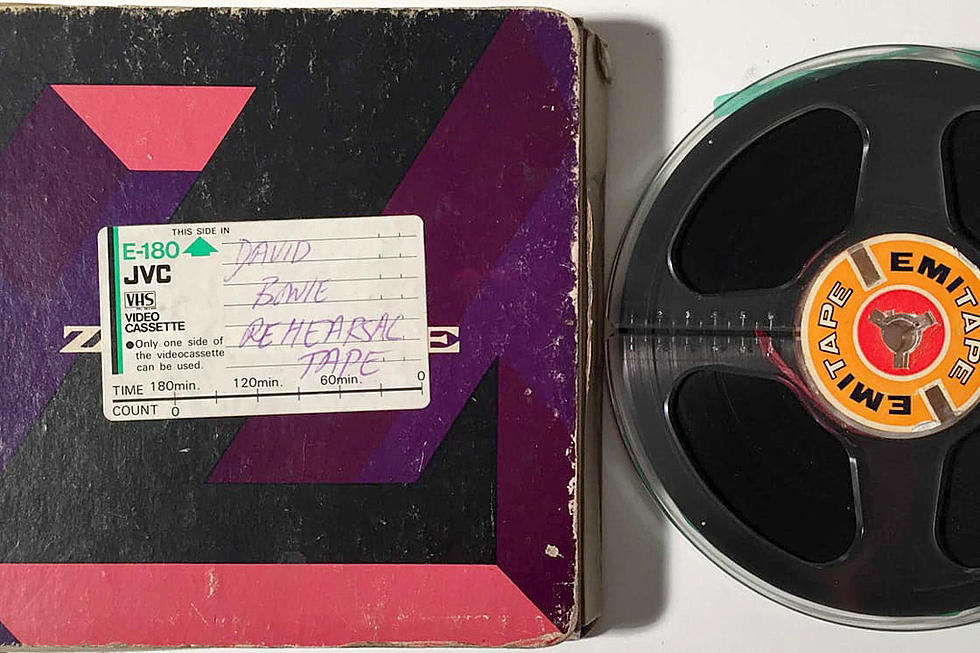
David Bowie Dead at 69 After Battle With Cancer
David Bowie has died after a battle with cancer, according to reports directly connected to the legendary artist and confirmed via his official social media pages.
The statement reads: "David Bowie died peacefully today surrounded by his family after a courageous 18-month battle with cancer. While many of you will share in this loss, we ask that you respect the family’s privacy during their time of grief."
Bowie was an incredibly influential and fearless singer-songwriter and producer who transcended genre, moving effortlessly from glam, art rock and dance-pop to punk, soul, electronica and hard rock throughout his more than 40 years in music. He just released his 25th album, Blackstar, on Jan. 8 – his 69th birthday.
Last October, Bowie's longtime promoter John Giddings said that Bowie – who hadn't toured since his 2003 and 2004 Reality Tour – had all but retired. Still, Bowie released Blackstar along with a haunting video for the mournful song "Lazarus," which depicts Bowie in a hospital bed. It's all the more difficult to watch now.
Watch the Video for "Lazarus"
Born David Jones in London on Jan. 8, 1947, Bowie changed his name in 1966 after the Monkees’ Davy Jones became a household name. After stints with several bands, Bowie signed with Mercury Records, which released his 1969 debut album Man of Words, Man of Music, featuring “Space Oddity” – a song that told the tale of fictional astronaut Major Tom, who was spiraling out of control in the dark void of space.
In 1972, he re-emerged during the glam rock era as the flamboyant and androgynous alter ego of Ziggy Stardust, along with the album The Rise and Fall of Ziggy Stardust and the Spiders from Mars and the hit single "Starman." Although the persona was relatively short-lived, it was just the beginning of a career defined by constant reinvention – both musical and personal.
He soon immersed himself in the dance-funk music of Philadelphia and created his own "plastic soul" genre on his first major American crossover Young Americans and the single "Fame," which he co-wrote with John Lennon. After moving onto Station to Station in 1976 and playing the title role in the sci-fi film The Man Who Fell to Earth, Bowie relocated to Germany to record the atmospheric 1977 album Low – the first of his “Berlin Trilogy” collaborations with keyboardist Brian Eno.
In 1980, Bowie released Scary Monsters, which referenced the Major Tom character from “Space Oddity” in “Ashes to Ashes.” But one of his most enduring songs proved to be "Under Pressure," a one-off collaboration with Queen. The single helped usher in a new height of popularity for Bowie, and he spent much of the '80s experimenting with the parameters of dance music. He also continued acting in major motion pictures, appearing as Jareth the Goblin King in Jim Henson's 1986 cult classic Labyrinth and as Pontius Pilate in Martin Scorsese's 1988 epic The Last Temptation of Christ.
Watch the Video for "Under Pressure"
During the '90s, Bowie embraced electronica and the harder edge of the rock spectrum by touring with Nine Inch Nails and releasing 1997's techno-heavy Earthling.
In October 2001, he opened the star-studded Concert for New York City, a landmark charity event to benefit the victims of the September 11 attacks, but his musical output began to dwindle after 2003's Reality. He returned in 2013 with The Next Day, and of course, his final album, Blackstar, just two days before his death.
Throughout his career, he sold an estimated 140 million albums. In the U.K., he was awarded nine platinum, 11 gold and eight silver albums. In the U.S., he achieved five platinum and seven gold albums. Bowie was inducted into the Rock and Roll Hall of Fame in 1996.
Musicians We Lost in 2015
More From Diffuser.fm









